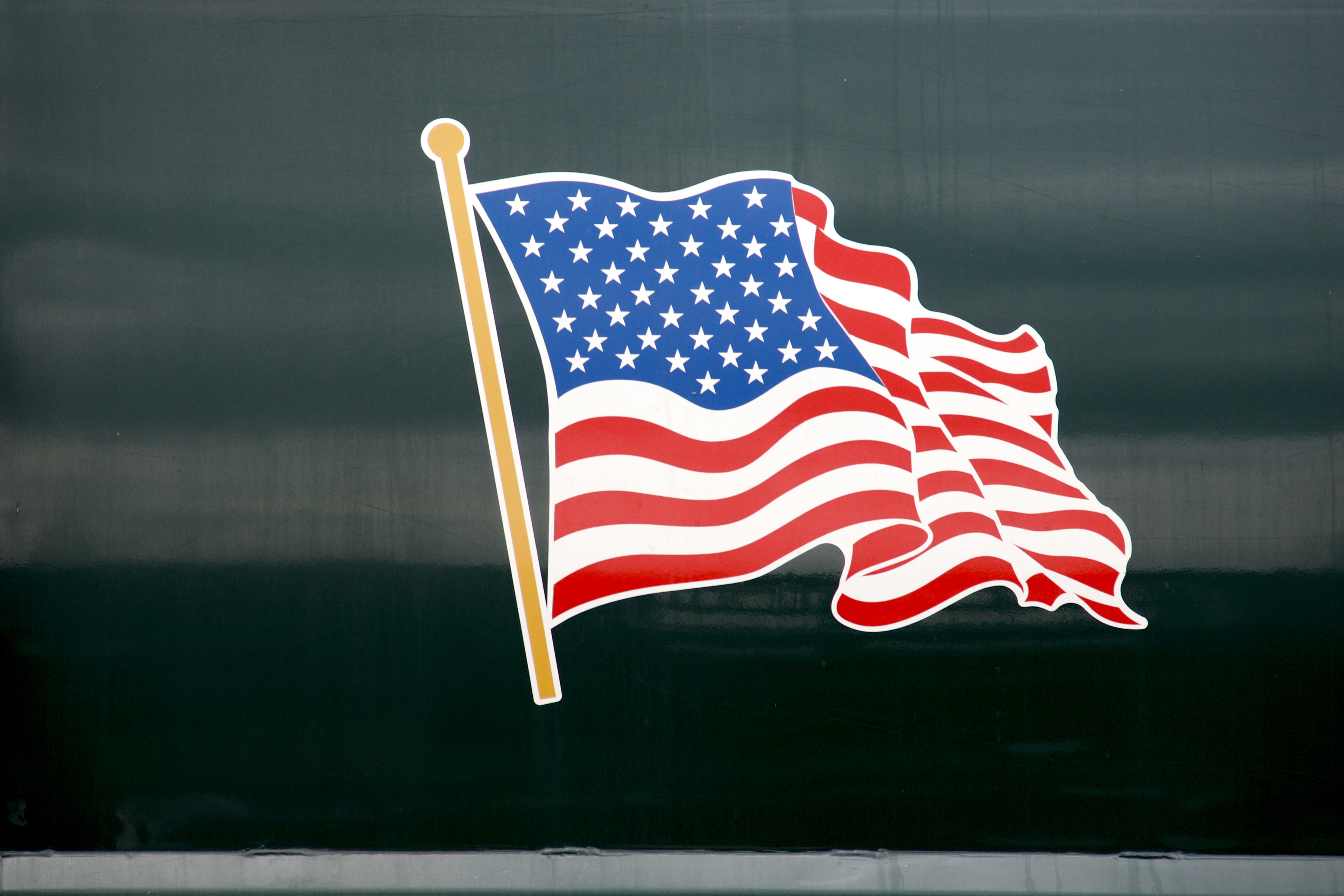
Our understanding of what it means to be a citizen is formed by many factors. Family can help influence how a person sees their relationship with their country. So can cultural and social influences and factors that frame the various periods of our lives. In these coming weeks, our bloggers will be reflecting on Civility and Citizenship.
My Grandmother Ruth loved her sparkly American flag pin. The red and white rhinestones set in rippling rows with white stones set amidst the blue to represent the stars on the waving flag. She would wear it around all national holidays and many other days as well. Her patriotic pins were visible signs of her allegiance to this country.
It was the 1970s and I was not impressed. She would probably be surprised to learn that I don’t wear images of the flag at all. The actions I take as a citizen are very different, from visiting with elected officials to advocating for specific issues or legislation. We all have the opportunity to engage in any number of ways to demonstrate our rights as citizens.
What I came to understand is that her patriotism developed from the fact that in 1894 she was born in New York City to German immigrant parents. She came into adulthood during WWI. Although German was spoken at home and at church, it was increasingly shunned in public. By WWII, I don’t think she spoke it much at all. When I told her that I was excited that I had signed up to learn German as I began 9th grade, her response was less than enthusiastic. She described it as an “ugly” language. She had spent much of her life trying to separate herself from her family’s German heritage.
She fully embraced the U.S.A. She once shared that she broke off a serious relationship with a young Canadian man because she presumed, she would have had leave this country and give up her American citizenship should they get married. Her citizenship was that important to her.
The next generations
Growing up during the Civil Rights era, Vietnam and then the cold war, I was less able to embrace what seemed to me to be blind allegiance to this country. I don’t remember ever hearing Grandma talk about any of those ongoing social issues. Nor did I perceive her to being open to hearing about criticism or to engage in questions of our national actions in reference to those social events.
I was fortunate that my dad, her son, was open to those conversations. And I learned from him that there are times when you do not argue, because there are just some people, like his father, who are not able or willing to learn from others who are different in thought or experience. In their family, my Dad was a peace-keeper. He modeled the need to cultivate the right spaces with respect if those conversations are to take place. And there are times when you just don’t even approach those controversial subjects.
Our family was driving to Florida to see my grandparents in June 1968. We were in Georgia when we heard on the radio of the death of Robert Kennedy. Instead of driving the rest of that day and staying at the campground that was on our itinerary, we instead did the very rare thing. My parents decided that we should stay in a hotel! Even though we always used our camper, that night we parked it in the parking lot in order to see the TV news coverage in the hotel room. They knew that once we arrived at Grandma and Grandpa’s the next day, there would not be any way to learn about or process what had happened in Los Angeles.
This is the family context where I learned about civility and citizenship. Civility, as defined by Oxford Languages, are more formal politeness and courtesy in behavior or speech. Citizenship is the relationship between the individual and the state.
Our life experiences and perspectives will indeed bring each of us to differing conclusions and a variety of ways to act upon our citizenship. But these don’t have to be the dividing lines in our relationships with each other.
I heard a radio report while riding in an Uber this week in Denver. The local station was helping to investigate and explain about the many secure measures that are in place in that state to ensure that each person’s vote is counted. There are special drop-off boxes for mail-in ballots. Teams of two people who have passed background checks and been trained, go to the boxes daily to empty the boxes and take the ballots to the county’s secure locations where they undergo several more security checks.
Each of those teams of two include one Democrat and one Republican. When interviewed, the women said that yes, they were surprised that they actually got along quite well! The differences in their political opinions didn’t hinder their ability to work together. They both were committed to this work because they believe in the democratic process of voting. That was more fundamental than their differences in the political positions of each party.
As we approach the midterm elections which we know will be followed a few weeks later by family gatherings at Thanksgiving, may our conversations be civil. May we look for the common values that we hold as the basis for our conversations. May we appreciate the generational experiences that have shaped each one of us. And may we all find ways to exercise our rights as citizens whether we show our allegiance in wearing sparkly flag pins or by taking more direct actions.


